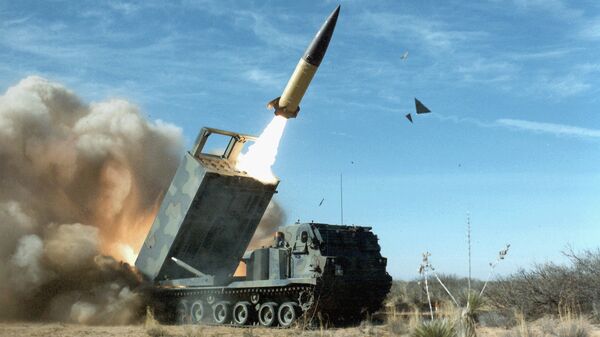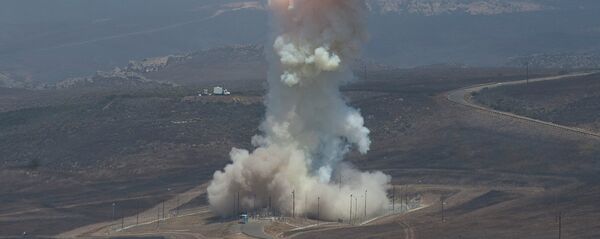The Army plans for the weapon to be available for ground troops by 2027, and if the weapon lives up to its hype it will extend by three times the range that current arsenal deployments deliver, service officials told the news outlet. In addition to equipping infantry and air-to-surface units with "attack, neutralize, suppress, and destroy" capabilities, "LRPF provides field artillery units with 24/7/365 long-range and deep-strike capability," across a range of military operations, spokesman Dan O’Boyle said.
The Army has tapped America’s third-largest defense contractor, Raytheon, and the country’s largest defense contractor, Lockheed Martin, to assist in product development. In August, Raytheon was the recipient of a $5.7-million "risk-mitigation" contract to design the baseline system for the LRPF, according to a company announcement. The self-described "world’s largest missile maker" said the new weapon would "allow the Army to double the firepower of long-range missiles in its mobile launchers." The contract stipulates a length of nine months, after which the Army will solicit proposals for further development, according to Raytheon.
According to Breaking Defense, "Russia and China have invested heavily in long-range rockets and surface-to-surface missiles with more range and power than American artillery."
In situations where air support is inaccessible, for example as a result of Russian or Chinese Anti-Access/Area Denial missile systems, LRFP missiles may be the Army’s only remaining form of fire support, Lt. Gen. H.R. McMaster told Congress in 2016, the same officer US President Donald Trump selected to replace Michael Flynn as National Security Adviser. Even if electronic systems and air support are available, combat conditions can sometimes eliminate the option of being able to call for a strike, or outline the GPS coordinates of an intended strike, McMaster added.
The LRPF will "replace the Army Tactical Missile System (ATACMS) capability, which is impacted by the age of the ATACMS inventory and the cluster munition policy that removes all M39 and M39 A1 ATACMS from the inventory after 2018,” according to the US Army. The service currently does not have plans to sell the missile system to foreign entities.



